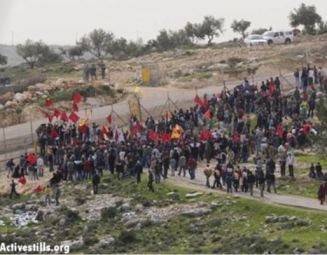The Palestinian Liberation Organization (PLO) agreed to holding indirect talks with Israel, as proposed by the United States, while some PLO factions expressed rejection to such talks.Yasser Abed-Rabbo, secretary of the Executive Committee of the PLO, said that the committee accepted the American proposal for indirect talks with Israel.
Abed-Rabbo added that after the PLO’s Executive Committee, headed by President Mahmoud Abbas, deliberated the issue for more than four hours, it decided that it would give the American proposal a chance.
The committee decided that such talks should be initially focused on the issues of borders and security.
It also stated that the American mediation and the foundations of the talks should be based on the two-state solution, to guarantee the establishment of a Palestinian state in the Palestinian territories, occupied by Israel in 1967, with East Jerusalem as its capital.
Abed-Rabbo said that indirect talks were rejected by some PLO Executive Committee members, while some committee members expressed reservations.
The leftist Palestinian People Party (PPP) voted against the resumption of talks under the circumstances.
The Arab League expressed support to indirect talks with Israel, mediated by the United States, and decided to give these talks a four-month chance to show progress.
The PPP said that deciding to hold talks, or not to hold talks, is a decision that should be made by the PLO and its factions.
Abbas is expected to hold a meeting in Ramallah on Monday, with the U.S. Special Middle East Envoy, George Mitchell, to discuss the American proposal.
On Wednesday, Abbas will be holding a meeting with U.S vice-president, Joe Biden, to discuss the efforts to resume the stalled peace process.
Palestinian Presidency spokesperson, Nabil Abu Rodeina, said that the Palestinians do not want guarantees, but want clear Israeli decisions to show it is willing to achieve peace.
“We also want to know whether the United States can resume its efforts, and is able to run the peace process under the current Israeli policies and preconditions”, Abu Rodeina said, “We need clear Israeli decisions, four months from now, the region will be on a cross road, the process either advances or returns to its current state of idleness”.
The Arab Follow-up Committee decided during its March 2nd meeting to convene again in June to evaluate the indirect peace talks, and to discuss other alternatives should the talks fail to show progress. One of the Alternatives is heading to the Security Council.

